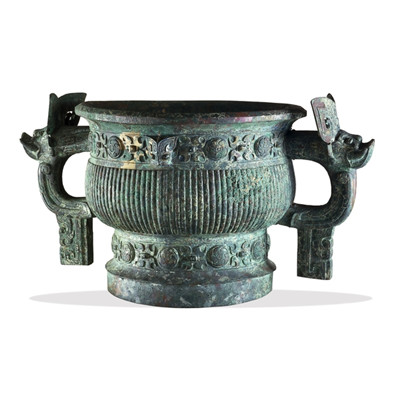(单词翻译:单击)
中英文本
How often do you dine with the dead?
你是否常与逝者共食?
It may seem a strange question, but if you're Chinese it may not be quite so surprising, because many Chinese,
这问题听起来奇怪,对中国人来说却仿佛理所当然。
even today, believe that deceased family members watch over them from the other side of death, and can help or hinder their fortunes.
至今仍有很多中国人相信,他们去世的家人会在另一个世界注视着他们,赐福或降祸给他们。
When somebody dies, they're equipped for burial with all kinds of practical bits and pieces:
如果有人去世,他们的随葬品会准备得十分齐全:
a toothbrush for instance-money, food, water-possibly a credit card and a computer.
牙刷、钱、食物、水,如今也许还会加上信用卡和电脑。
The Chinese afterlife often sounds depressingly like our own.
中国人去世后的生活听起来与我们的并无不同。
But there is one great difference: the dead are paid huge respect.
但有一点差别极大:在中国,逝者会获得极大的尊重。
A well equipped send-off is just the beginning:
一场准备齐全的葬礼仅仅是开始,
ritual feasting - holding banquets with and for the ancestors-has been for centuries a part of Chinese life.
几千年来,中国人一直为死去的祖先准备盛宴,并与之共享。
"The primary and most ancient religion in China consists of preparing ceremonial meals for the dead."
“中国最主要及最古老的宗教由为逝者准备正餐组成。”
"In Chinese way it's ritual, particularly of banquets, offering your ancestor food."
“在中国眼中,这是一种仪式,是特别的宴会,为你的祖先提供食物。”
A history of the world.
世界历史,
In a hundred objects.
百件藏品,
Bronze gui,, a ritual food vessel from western China , aproximatelly 1500 BC.
发现于中国西部约公元前1100至公元前1000年的青铜簋。

重点讲解
1.credit card 信用卡;记帐卡
Could I pay by credit card?
我可以用信用卡支付吗?
Know what your credit card balances are on each of your cards.
了解您每一张的信用卡余额是否在你的卡上。
2.consist of 由…组成;由…构成
They always consist of a single, inlined region.
它们始终有单一的、内联的区域组成。
Other types of logging statements consist of simple method entry and exit information.
其他类型的日志语句由简单的方法进入和退出信息组成。


